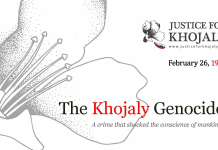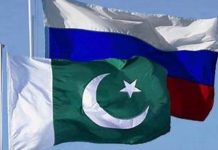Islamabad, AUG 22 /DNA/ – Experts from Pakistan, Turkey and Iran speaking a webinar have opined that only a rationally inclusive government in Kabul will lead to peace and stability in Afghanistan and the region. It is a good sign that Taliban are behaving more mature this time and talking to the neighbouring countries in their language. They have a more rational approach towards their own people from different segments of the society.
They mentioned that Taliban’s brisk takeover of the country without any strong resistance from the Afghan army has shown Taliban’s wide acceptance in their country. Another opinion contrarily doubted the Taliban’s smooth sailing through all the parts. Taliban’s takeover could have been planned by some external forces to create chaos in the region against China’s aggressive economic moves. However, the experts believed that only infrastructural and economic development in Afghanistan would lead to peace and prosperity in the region. All the neighbouring countries should support the government in Afghanistan that is acceptable to the natives.
Development Communications Network (Devcom Pakistan) and DTN organized the webinar on “Afghanistan: Post-Taliban Challenges for the Region” Saturday late with panelists from Pakistan, Turkey and Iran. The key experts included chairman Senate Standing Committee on Defense Senator Mushahid Hussain Sayed, geopolitical analyst former ISI chief Lt Gen rtd Asad Durrani, Director of Middle Eastern Studies Center (ORSAM) in Ankara and professor of Political Sociology in Istanbul University Prof. Dr. Ahmet Uysal, Director South Asian Studies at Tehran International Studies and Research Institute Dr. Somaye Morovati, and chief executive officer Khyber Pakhtunkhwa Board of Investment and Trade (KP BIOT) Hassan Daud Butt. Devcom Pakistan Executive Director Munir Ahmed hosted and conducted the webinar.
Senator Mushahid Hussain Sayed said the US squandered $ 6.4 trillion on ‘war on terror’ including $ 2.2 trillion in Afghanistan, almost $ 100 billion on 300,000-strong Afghan Army and Air Force, which roughly means spending $ 100 billion every month on the Afghan War for the last 20 years. Despite huge investments the US could not build a strong defense in Afghanistan that is a monumental failure of a super power.
Senator Mushahid urged the countries in the region to forge a regional policy with China, Russia, Iran and Turkey at the core, plus Central Asian neighbors of Afghanistan including Uzbekistan, Tajikistan and Turkmenistan. Call a conference of these countries inviting the USA too for a comprehensive plan for peace and stability in the region.
Lt. General Retd Muhammad Asad Durrani said that spillover of Taliban’s takeover in Afghanistan is expected in Pakistan. The elements shall be taken to confidence and their concerns shall be addressed according to the state’s interests. The Taliban’s takeover is not unexpected. They had actually won the negotiations but were waiting for the moment. It seems that the US has intentionally provided the Taliban an opportunity to take over and lead to a civil war in Afghanistan. Taliban this time have shown maturity and he believed the consensus of the Afghan tribes would play a significant role for the future of the country.
Professor Dr. Ahmet Uysal said the main losers in Afghanistan are the USA in particular and the NATO countries while the West overall. That is because the USA and its allies invested in the Afghanistan invasion at the heart of Asia hoping to establish a unipolar Western hegemony along with the invasion in Iraq, but they failed miserably. The second loser is India that invaded the old corrupt Afghan government to contain Pakistan, and to reach Central Asian markets. They have had strategic, diplomatic and economic losses in Afghanistan. The third group of losers are the US allies such as Israel, some of the Gulf countries and a faction in Syria. Briefly, they all have witnessed that the US alliance was not dependable and the US could leave its ally alone anytime.
Dr. Uysal termed Pakistan, China and Russia as winners, and Turkey and Iran to some extent. “Pakistan won because they supported the resistance against American invasion and secured its northern borders. Now the winners and others shall contribute to the stability and development in Afghanistan because the West will probably try to ignite chaos in the region to mainly stop Chinese expansion. Turkey can help Afghanistan to gain legitimacy in the diplomatic field and tone down their discourse.”
Dr Somaye Morovati opined that Taliban in 2021 are not the same as they were in the 1990s, and are more dangerous. Their influence would spillover to other countries in the region while future prospects of Afghanistan remain uncertain. It would have adverse consequences as the Taliban have declared the formation of “Islamic Emirate of Afghanistan” on Thursday. The neighbouring countries shall find a way for coordinating closely to facilitate a smooth transition in Afghanistan for regional stability.
Hassan Daud Butt said the peace in Afghanistan can be achieved through development where the Belt and Road Initiative can be instrumental. Pakistan and Afghanistan can leverage its natural endowment to attract investment in the mining, energy and agriculture sector. China was engaged in regional development and integration through BRI and supporting infrastructure development including hospitals, roads, bridges and railways while the US was engaged in war in Afghanistan.











